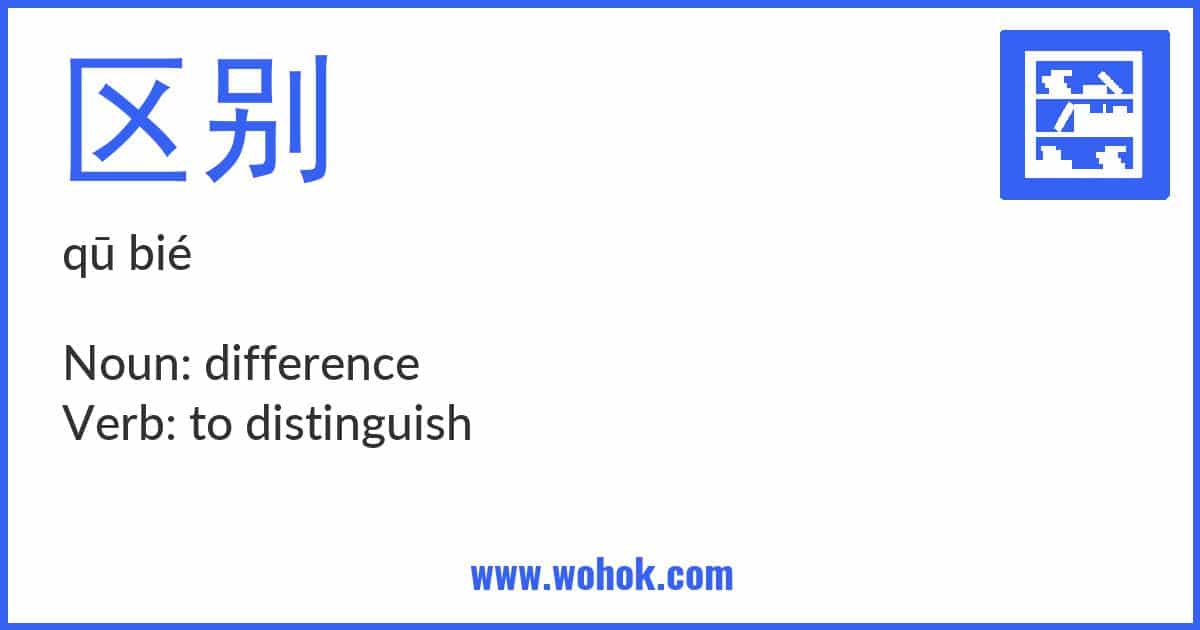The Chinese word “区别” means “difference” or “distinction”. It is commonly used to describe the differences between two or more things, people, or concepts. For example, you might use “区别” to explain the differences between two products, or to describe the distinctions between two similar words in Chinese. “区别” can also be used as a verb, meaning “to distinguish” or “to differentiate”.
Translation
Noun: difference
Verb: to distinguish
Pronunciation
Example Sentences
| Chinese | Pinyin | Engish |
|---|---|---|
| 我们需要区别这两个概念 | wǒmen xūyào qūbié zhè liǎng gài niàn | We need to distinguish between these two concepts |
| 他们之间有很大的区别 | tāmen zhī jiān yǒu hěn dà de qūbié | There is a big difference between them |
| 我们应该学会区别好坏 | wǒmen yīnggāi xuéhuì qūbié hǎohuài | We should learn to distinguish between good and bad |
| 这种颜色的区别很微小 | zhè zhǒng yánsè de qūbié hěn wéixiǎo | The difference in this color is very subtle |
| 这两个品牌的区别在哪里? | zhè liǎng gè pǐnpái de qūbié zài nǎlǐ? | What is the difference between these two brands? |
| 我们需要区别事实和谣言 | wǒmen xūyào qūbié shìshí hé yáoyán | We need to distinguish between facts and rumors |
| 他们的观点有很大的区别 | tāmen de guāndiǎn yǒu hěn dà de qūbié | Their viewpoints have a big difference |
| 这两个人的性格有很大的区别 | zhè liǎng gè rén de xìnggé yǒu hěn dà de qūbié | These two people have a big difference in their personalities |
HSK
区别 is part of HSK Level 4 in HSK 2.0. In the newer HSK 3.0 it is part of HSK Level 3.
Learning Card


